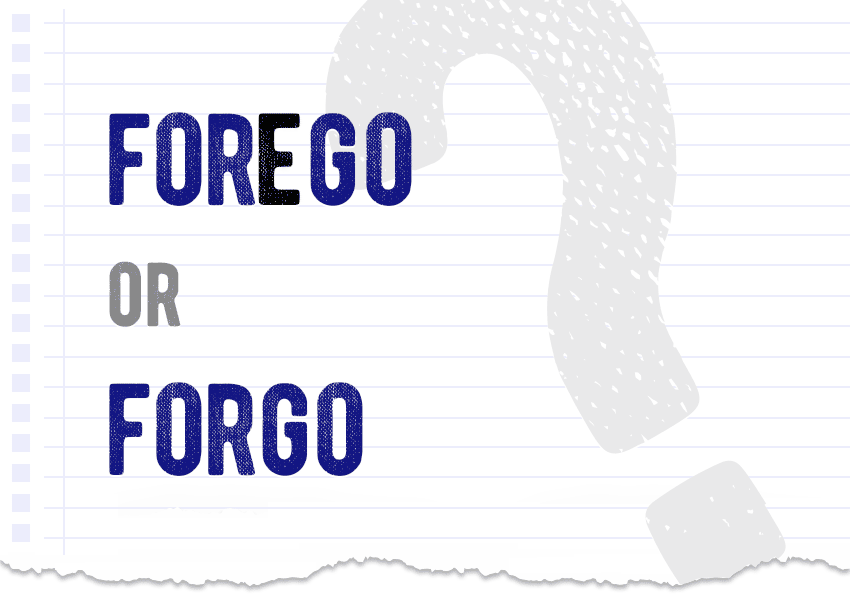Forego or forgo – which one is correct?
Forego or forgo? It would seem that only one of these two spellings is correct. However, there’s more to it than meets the eye. Not only are both forego and forgo correct, but they also have a slight difference in meaning.

Forego or forgo – which form is correct? What’s the difference?
As a matter of fact, both forego and forgo might be used with the meaning of doing without. However, it is crucial to be aware that the verb forego carries also another meaning – to go before. Considering the history of English language formation, the prefix fore- used to mean before. In contrast, the prefix for- was to denote prohibition or loss (e.g. forbid, forfeit, forget). Although the distinction used to be obeyed, it is nowadays forgotten.
Forego – when to use it
Even though forego and forgo tend to be used interchangeably today, it is crucial to remember that forego was created for a different purpose. An archaic word forego should be used to refer to something preceding a statement or situation. It shall be used as a verb as well as a verbal adjective.
Forgo – when to use it
It is recommended to use forgo when it could be replaced by words such as give up, quit, do without, waive, pass, surrender, and sacrifice.
Forego or forgo – now it’s all clear! Examples in sentences
Examples of forego in sentences
- The workshop was forgone by long but interesting lecture.
- The foregoing provisions shall come into force with the signing of the contract.
Examples of forgo in sentences
- I had to forgo the purchase of that jacket because I didn’t have enough money.
- Newlyweds asked their guests to forgo flowers and they requested wine instead.


